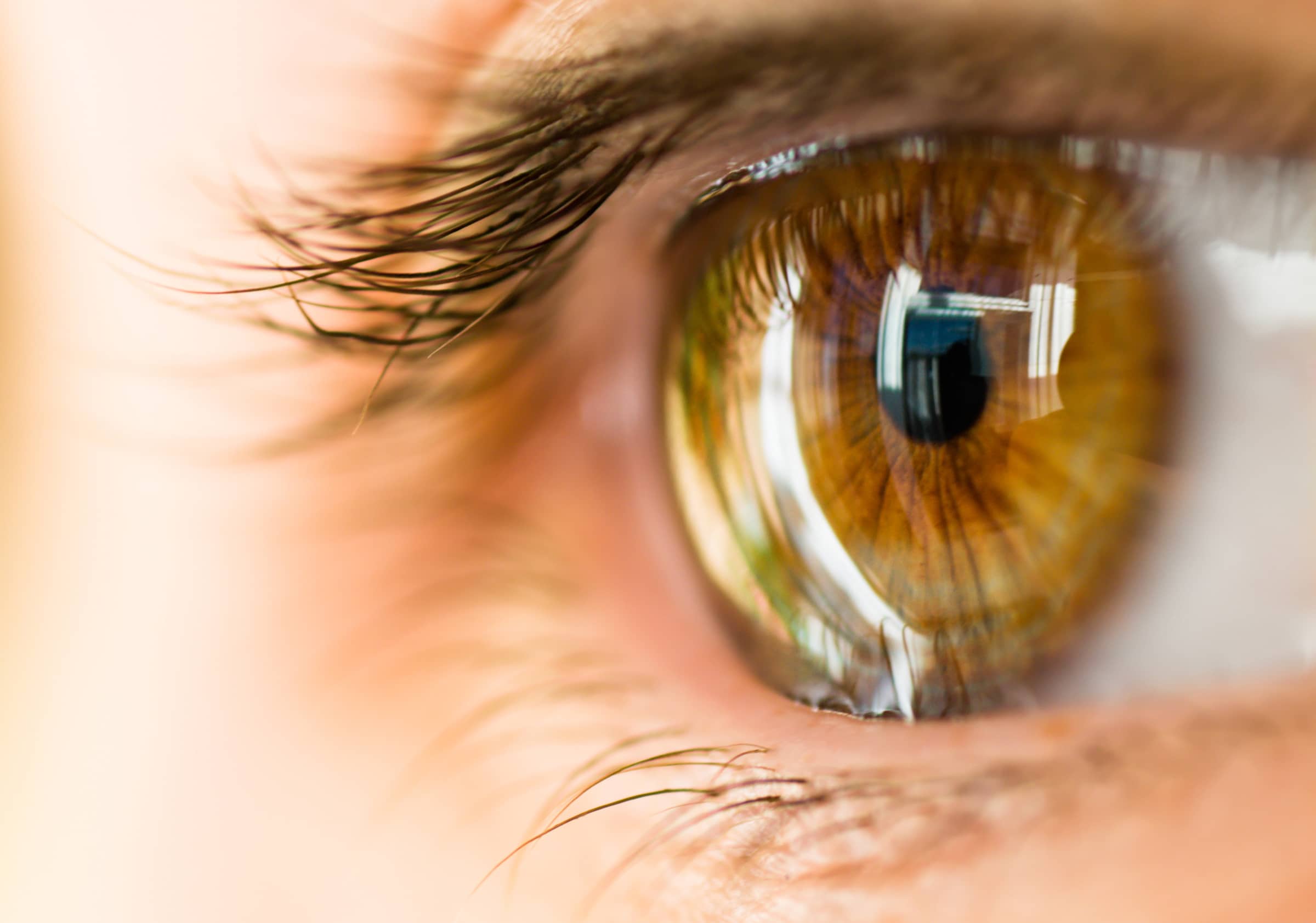Corneal dystrophies are inherited disorders that affect the clear outer layer of the eye. When a corneal disorder develops, abnormal material may accumulate on this part of the eye. The cornea may swell and become cloudy. In some instances, the disorder can cause discomfort in the eye and a progressive loss of vision. Cape Fear Cataract & Cornea is proud to perform advanced eye care treatments such as DMEK to help patients with corneal dystrophies regain clearer vision and a better quality of life.

What is Descemet’s Membrane Endothelial Keratoplasty?
Descemet’s Membrane Endothelial Keratoplasty (DMEK) is an intricate eye surgery in which the innermost area of corneal tissue, including endothelial cells, is removed and replaced.
What Eye Conditions Can Be Treated With DMEK?
DMEK is a corneal procedure that is considered the standard of care for the treatment of disorders such as Fuchs’ endothelial dystrophy and Bullous Keratopathy. The technique is performed to reduce swelling and restore sharper, clearer vision. DMEK may also be considered for failed prior corneal transplants.
Benefits of DMEK Surgery
DMEK is the standard of care corneal procedure for several reasons.
- Minimal thickness replacement. DMEK surgery is minimally invasive and generally conservative. The procedure involves small incisions and the use of microsurgical instruments to carefully remove the centermost endothelium from the cornea. The procedure takes less time than traditional, full-thickness corneal transplant and is regarded as extremely safe and effective.

- Improved corneal strength. Graft dislocation is a minimal risk after DMEK surgery because only the posterior layer of tissue is replaced.
- Predictability. DMEK surgery does not require the placement of sutures. The procedure also does not alter the front shape or steepness of the cornea. This results in a very low chance of changes in refraction after surgery.
- Improved recovery. Full-thickness corneal transplant surgery has historically carried a one- to two-year journey to complete recovery. By limiting incisions and tissue modification to the central part of the cornea, surgeons substantially reduce recovery time. Most DMEK patients see clearly enough to resume driving within a month of their procedure.
The DMEK Procedure
Descemet’s Membrane Endothelial Keratoplasty is typically performed as an outpatient procedure. Appropriate anesthesia is administered to maintain patient comfort throughout the surgical procedure.
Tissue replacement involves the use of microsurgical instruments to separate a very thin layer of endothelial cells as well as the membrane situated at the backside of the cornea. The excised layer of cells is then replaced with a replica made up of healthy donor cells. The new cells are secured to the cornea with a gas bubble. Over time, the gas bubble dissipates, and the new cells integrate into the cornea.
Why Choose Dr. Brian Groat?
Dr. Brian J. Groat received his medical doctorate from Tulane University School of Medicine and is a board certified cataract, cornea, and glaucoma surgeon. He worked as the head of ocular trauma in 2011 at Bagram AB, Afghanistan, where he performed brain, orbital, ocular, and facial surgeries.

At Cape Fear Cataract & Cornea, we are dedicated to providing our patients with the highest level of care. Dr. Groat has years of training and experience to recommend him. Dr. Groat prides himself in providing his patients with expert care and service while helping them restore and improve their vision.
DMEK Patient Testimonial
Post Operative Care
The eye that receives donor cells requires specific care after surgery. The insertion of a gas bubble requires the patient lie on their back for the first 24 hours. After the first postoperative visit, Dr. Groat will advise the patient about positioning. Lying on your back holds the gas bubble in place and keeps the new cornea in position while the new cells start to function.
When Can I Return to Normal Activities After DMEK Eye Surgery?
Activity restrictions will continue over the first week after surgery. After the 1 week visit, normal activities can be resumed, with the exception of very strenuous activity. Patients may be able to resume driving and performing light activities within a week after DMEK surgery. Eighty percent of the healing that needs to occur takes place within the first month after treatment. Full recovery is usually complete within four to six months.
How Can DMEK Treatment Affect My Vision?
Initially, vision will be very blurry after DMEK surgery. This is because slight swelling and the presence of the gas bubble in the eye mildly distort the passage of light through the eye. As the gas bubble dissipates over seven to ten days, vision continues to improve. When there are no other eye problems, DMEK can result in 20/20 vision within a few months after treatment.
Risks of DMEK Surgery
The meticulous technique involved in keratoplasty procedure has decreased risks compared to traditional cornea transplant methods. As with all surgical techniques, there is a minor risk of infection. Re-bubbling may also occur if the edge of the corneal graft detaches after surgery. Additionally, transplant rejections occur approximately 8-10% of surgeries.
Schedule a Consultation
Learn more about Descemet’s Membrane Endothelial Keratoplasty (DMEK). Contact Cape Fear Cataract & Cornea, P.A. today! Call us at 910-769-4590 to schedule a consultation with Dr. Brian Groat.


